




• Focus your sales teams with lender qualified leads
• Communicate with your loan team online
• Enjoy a dedicated Community Guide to support your success
• Multiple lending options to accommodate every community strategy
• ZippyFast funding to fill your community with long-term, happy and successful residents
• Bilingual services and ITIN lending













We Deliver
Award-Winning Home Designs
A Nationally Dedicated Community Solutions Team
Financing Opportunities with Wholesale Flooring and Consumer Finance Programs through Champion Financing
Site-Services Including Construction and Transport
Professional Marketing Support
Professional Interior Design Services







PUBLISHER Patrick Revere | patrick@mhvillage.com
SENIOR GRAPHIC DESIGNER Merit Kathan | merit@mhvillage.com
CONTRIBUTING EDITOR George Allen | gfa7156@aol.com
EDITORS Dawn Highhouse | dawn@mhvillage.com, Sean Vichinsky | sean@mhvillage.com
CONTRIBUTORS David Finney, Ray Leech, Eden Markowitz, César Mascorro, Jr.,
ADVERTISING SALES (877) 406-0232 advertise@mhvillage.com


Manufactured housing professionals enter 2025 with a growth mindset, a clear vision of how homes the industry provides fit into the national picture, and how the homes the industry provides could and should help meet a local need.

Patrick Revere is vice president of communications at MHVillage and publisher for the MHInsider magazine and blogs. His background is in print news, language, and communication.
Have Industry News, Events, or Editorial Content You'd Like to Share?
Contact our Publisher, Patrick Revere at (616) 888-6994, or patrick@mhvillage.com
The economy continues to stabilize, with inflation and interest rates coming down. What has been a national debate in the recent campaign cycle has turned into a national conversation in which it seems everyone agrees. We need more housing. A lot of it.
Labor remains difficult to manage but is manageable still.
And while so many other topics are deserving of attention, increasing the housing stock, and, more pointedly, increasing attainable home ownership, is a complex measure that feeds solutions for so many other concerns. The manufactured housing industry creates attainable homes and thriving communities. The manufactured housing industry creates jobs. The manufactured housing industry brings ever-valuable service industry and government workers back to the city centers they serve; in schools, hospitals, firehouses, and city offices. The manufactured housing industry helps provide a stable environment for school students to study and learn.
The last few years there has been a lot of hard work put in to help decision makers understand the value of manufactured housing. In this publisher’s opinion, mission accomplished. The industry has gone from earning an ear,
to having a fan, to welcoming an advocate. This has been overwhelmingly true with each of the last three HUD secretaries (including its recent acting secretary), and it will continue to be true for incoming housing leaders.
When approximately 3,500 professionals descend on The Louisville Show, Jan. 15-17 at the Kentucky Exposition Center, there will be an opportunity to look at the latest models, an abundance of services and supplier solutions, and to sit in on topical educational sessions. The show will be bigger and better than ever. But the overwhelming theme in conversation among attendees is likely to be “How can we clear the way?” The conversation will not be “if” but “how” and “when”. Pointers and pens poised, the next job of our industry is to find ways to ease and streamline home purchases. There are fronts such as lending and insurance that can be made faster and easier. There are areas of the workforce, including in the trades, that could use the support of a unified national industry.
Fortunately, for industry professionals and those who we serve, there is plenty of wisdom, a well of tangible resources, and unbridled enthusiasm for providing the homes and homeownership experience nationwide that so many desire and deserve.

An all-ages manufactured housing community and an adjacent RV Resort in Vista, Calif., were sold late last year in a deal brokered by Marcus & Millichap. Melrose Trailer Park and Olive Avenue RV Resort sold to Pacific Current Partners for $20.35 million. “Melrose Trailer Park and Olive Avenue RV Resort have been owned by our clients for several generations and this is the first time the properties have ever traded hands,” Dustin Wilmer, in Marcus & Millichap’s San Diego Del Mar office, said. “These adjacent parks were 98 percent occupied with strong collections at the time of the sale. The opportunity to own high-quality parks totaling 150 sites with near 100 percent occupancy in San Diego generated multiple offers.”
CL3 Capital, a real estate acquisitions firm, has purchased SunsetMHP, an 80-homesite community in Rushville, Ind. The community is situated on a spacious parcel of land, providing residents with a comfortable and welcoming environment. The prime location offers convenient access to local amenities, schools, and recreational facilities, making it an ideal home for families and individuals alike. “This acquisition reflects our ongoing strategy to invest in well-located properties that provide stable cash flow and the potential for value enhancement,” CL3 Capital Principal Chris Murray said. CL3 Capital plans to implement a series of improvements, including enhanced infrastructure, streets, and landscaping, and a focus on sustainability. Murray said the firm
aims to create a vibrant community atmosphere that encourages resident engagement and fosters long-term satisfaction.
The Los Angeles offices of Northmarq has brokered the sale of three manufactured home communities in the northwest for a total combined sale price of more than $14 million. The 213-site portfolio includes a pair of communities in Woodland, Wash., and another in Roseburg, Ore.
The Broadway Company acquired Hillside Village in Oxford, N.J., and Sherwood Village, in Long Valley, N.J. “We remain bullish on the residential housing market in Northern New Jersey, with a particular focus on manufactured housing,” Tana E. Weissman, of TBC, said. “The costs of land, real estate taxes, and construction are very high in Northern New Jersey, so manufactured housing offers an affordable housing solution for residences.”
The Reserve at Fox Creek, a 300-plus homesite community in Bullhead City, Ariz., has been sold to Keith Management for nearly $38 million. The Reserve is an age-restricted community with a fitness center, swimming pools, a clubhouse, a game room, bocce ball, a library, dog park, and walking trails.
The U.S. Department of Housing and Urban Development has named Teresa Payne the new deputy assistant secretary for manufactured housing, a position created when the Office of Manufactured Housing Programs became an independent office reporting to the assistant secretary for Housing and the Federal Housing Commissioner.
Asa Sherwood on Jan. 1 began his tenure as CEO of Zeman Homes and former CEO Jeff Fannon will serve as vice chairman. Sherwood previously served as chief operating officer and president of Community Operating Solutions, a Zeman subsidiary, and was responsible for developing OnPoint Management Services, Zeman’s third-party multifamily management platform.
Cove Communities has appointed James R. Goldman as CEO, bringing more than 30 years of experience in the commercial real estate industry and expertise in niche real estate sectors including manufactured housing communities. Goldman served as CEO of Goldman & Company, a real estate advisory company serving family offices, institutional investors, and real estate owner/operators in the manufactured housing community, RV resort, marina, and parking sectors. “At the conclusion of an extensive search process, we are extremely excited for Jim to join the Cove Leadership team. Jim’s extensive experience within the manufactured housing community sector, combined with his acquisitions, operations, capital markets, and strategic planning expertise, will be greatly valued as Cove positions itself for future internal and external growth,” Murray McCabe, managing partner of Montgomery Street Partners, Cove’s general partner, said.
Family Promise Honors Clayton
Family Promise, a nonprofit addressing family homelessness, has awarded Clayton the inaugural Karen Olson Impact Award for its longtime partnership and support. “We were thrilled to present Clayton with the inaugural Karen Olson Impact Award in front of the Family Promise national network at our conference in Indianapolis,” Family Promise CEO Cheryl Schuch said. “We were equally honored that Karen Olson was in attendance to help us recognize Clayton.” The award, named after Family
Promise founder Karen Olson, recognizes a Family Promise partner or community member’s impact on the lives of families experiencing, or at risk of, homelessness.
Maine Retailer Celebrates 80 Years
State Manufactured Homes in Scarborough, ME celebrated 80 years in business by offering customers 10 new homes at reduced prices. The company was founded by Bob and Agnes Desfosses and remains in the family today, operated by daughter Theresa Desfosses and her daughter Tina, son-in-law Gordon Smith, and their son Jacob Smith. The Desfosses family has worked to build the business, along with its reputation, for being honest and hardworking in the sales of factory made homes.
The First State Manufactured Housing Association has awarded recipients of the Manufactured Housing Scholarship Award for 2024-25. The scholarships go to Samantha Buckley, of Millsboro, Del., Ellis Jack, of Lewes, Del., Emma Moyer, of Long Neck, Del., and McKenna Vest, from Clayton, Del. Each scholarship is in the amount of $2,500, and totals $10,000.
Former Champion Homes executive and long-time board member Keith Anderson passed away in October, the company announced. Mr. Anderson had been CEO of Champion, and “had a deep and long-lasting impact” on the company and the industry. He was instrumental in the merger with Skyline Corporation in 2018. As a member of the board, Mr. Anderson showed an unwavering commitment to a quality product and to delivering outstanding customer service while maintaining a strategic mindset toward long-term goals.
John W. Bass, a North Carolina manufactured housing professional who set up homes in the region, was laid to rest in October. He opened Bass Mobile Home Moving after serving in the U.S. Air Force, he worked in management at a grocery store and as assistant chief at Gaston Detective Agency.
By Merit Kathan

The 2025 redesign of MHInsider brings a fresh, reader-friendly look to the magazine, combining style with ease of use while drawing inspiration from 2025 design trends. A new body copy font and wider margins make articles easier to read, while updated display fonts add a modern personality.

Our new design incorporates layered textures and organic, free-flowing shapes to create depth and keep things visually engaging. Playful asymmetry adds energy, while the clean, minimal layout ensures everything feels fresh and uncluttered. With bold typography, strong color choices, and subtle natural details, the new look perfectly balances creativity and professionalism — making every page a pleasure to explore.
Attending the 2024 Adobe Max conference in Miami was a game-changer for our production process. The creativity and innovation shared by the incredible speakers, presenters, and artists inspired the reimagined design of MHInsider magazine. In attending sessions to refresh typography and technical layout skills, we have been able to create a sharper focus and modern flair to the magazine’s design. The insights from Miami fueled a vision to create this fresh, engaging layout that not only looks great but also serves our readers more effectively.
In the months to come, MHInsider will survey its readers in regard to how they interact with our products and platforms, not just the print magazine, but the blog, our bi-weekly newsletter, and the MHBuyer’s Guide. Those responses will be taken and considered for continued reshaping of MHInsider and what it offers our audience. MHV
Merit Kathan is the Senior Graphic Designer for the MHInsider and has over 25 years of experience in print, marketing, publishing, and packaging design.





By Sean Vichinsky

Champion Homes played a pivotal role in a landmark infill project in the North Corktown neighborhood of Detroit that has produced seven factory-built manufactured and modular homes for the area.
The project, launched by the North Corktown Neighborhood Association in partnership with Champion, the Gilbert Family Foundation, Enterprise Community Partners, InnovaLab, ManufacturedHomes.com, and a pair of other manufacturers, demonstrates the value and potential of factory-built housing in an area that has long suffered from a lack of modern, affordable living.
That’s a pain point that Tricia Talley, the executive director of the NCNA, has long experienced after seeing sky-high rents in her area.
“We began this project in August of 2023,” Talley said. “People have been expected to pay $1,200, $1,500, even $1,800 for a one-bedroom apartment, which keeps them from qualifying for a mortgage.”
It’s a problem that Gilbert Family Foundation Executive Director Laura Grannemann expressed similar frustrations about, particularly as it relates to Detroit’s aging housing infrastructure.
“Eighty percent of homes in the city of Detroit were built before 1960,” Grannemann said at the Tomorrow’s Housing Innovation Showcase on Friday, Oct. 25. “So, this is an urgent situation not just for innovation, but for the lived experience of Detroit residents across
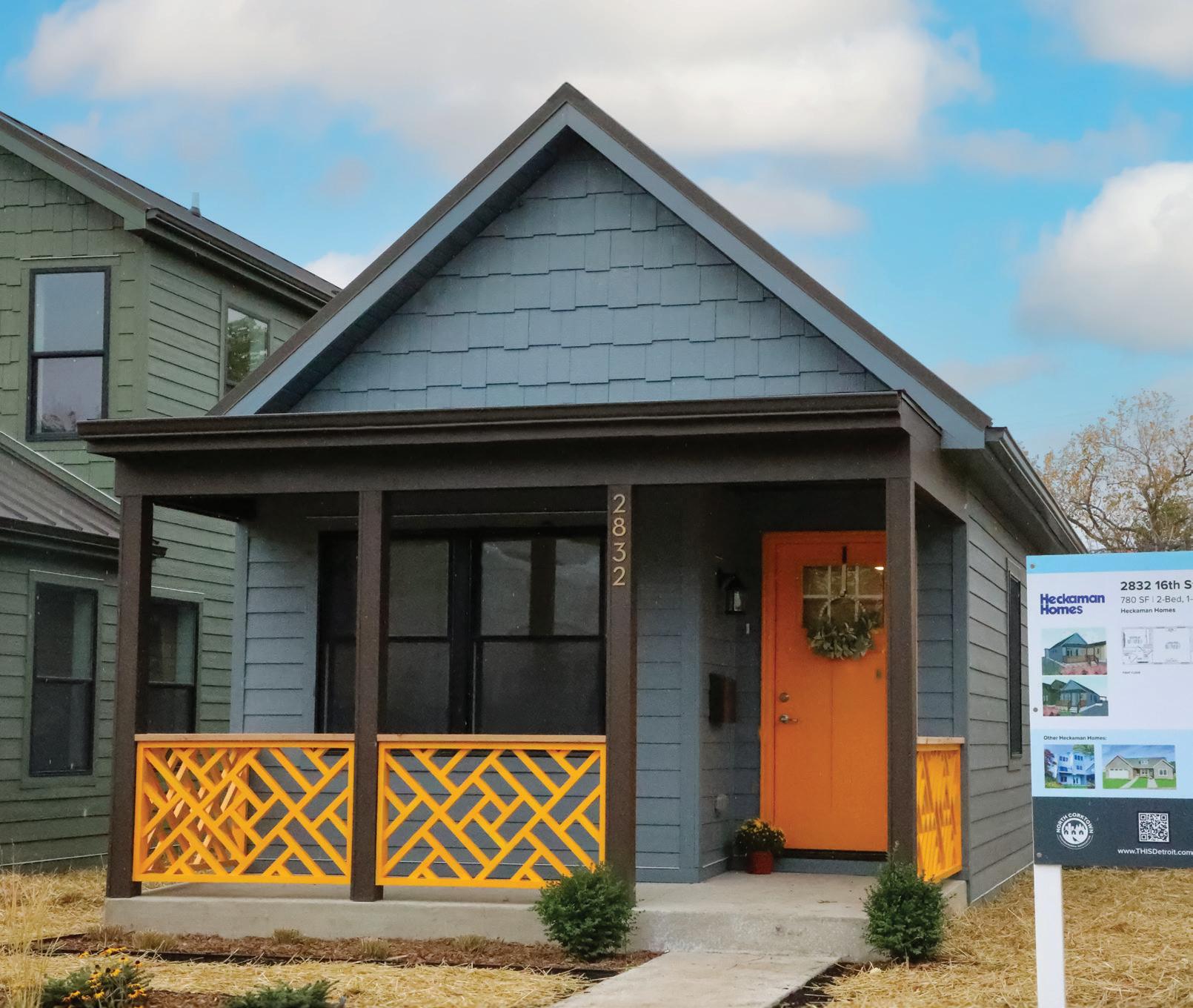
the city. We believe that everyone in the city deserves a stable home.”
The NCNA began to explore how to bring accessible housing to a plot of land managed by the Open Space Community Land Trust on 16th Street within view of the famous, newly revitalized Michigan Central Station.
With financial support from GFF through Enterprise Community Partners, Talley and her team got to work envisioning how the land could be used for more cost-effective single-family dwellings.
“It’s about re-imagining what home ownership could be in a community like North Corktown,” Talley said at the unveiling of the homes. “We’re not just displaying homes. We’re showcasing a vision for a more accessible, sustainable, and vibrant future.”
Once conversations started between Talley and the Gilbert Family Foundation,
David Allen and his team at InnovaLab came in to get things off the ground.
“The fact that we only do factory-built housing, and that we only serve clients in the government and nonprofit space, really set us apart for this project,” Allen, president of InnovaLab, told the MHInsider.
The seven homes brought in by Allen’s team include four modulars and one HUD-code home from Champion Homes, which is based in Troy, Mich., a modular produced by Indiana’s Heckaman Homes, and a Ritz-Craft manufactured home out of Pennsylvania.
“It is so important to continue getting these homes into the contiguous neighborhoods in the metropolitan areas,” Byron Stroud, director of business development for Champion Homes, said. “That’s where you’re going to see the real impact.”
“It
is so important to continue getting these homes into the contiguous neighborhoods in the metropolitan areas,” Byron Stroud, director of business development for Champion Homes, said.
“That’s where you’re going to see the real impact.”
Allen said a project of this scale normally would take InnovaLab about 60 days to complete.
“We put together all seven homes in 45 days, which was a challenge, but our team came through on a truncated timeline,” Allen said.
Everybody involved hopes that the infill project will demonstrate the potential that factory-built housing brings to metropolitan areas.
“We have a vast amount of land with no density in Detroit,” Talley said. “With these types of home models, we can support anyone that wants to come back to Detroit in an affordable way.” MHV Sean Vichinsky is an editor of MHInsider and a marketing copywriter for MHVillage.



For 25 Years
We’ve remained the only software built specifically for manufactured housing by industry veterans.

your business deserves the best
7 of the Top 10 Owners & Operators Partner with ManageAmerica to Streamline Their Day-to-Day & Make Sure They’re Not Leaving Money on the Table.
The Federal Housing Finance Agency has made public its inaugural announcement on the quarterly Manufactured House Price Index.
“FHFA’s new data resource on manufactured homes provides relevant, up-to-date information on an important but less-understood segment of the housing market,” FHFA Director Sandra L. Thompson said. “In a housing market with elevated home prices, manufactured housing remains an affordable option. This new data should help advance discussions on responsible efforts to expand homeownership opportunities.”
The price indexes and median prices for manufactured homes are both based on data from real-property conventional mortgages acquired by Fannie Mae and Freddie Mac.
Pricing data for manufactured homes will be updated quarterly and included along with the flagship FHFA HPI® — released monthly and quarterly — featuring publicly available data series on trends in single-family home prices.
The new data release for manufactured homes includes purchase-only as well as all-transactions house price indexes (the latter combining purchase and refinance data). Both measure quarterly changes in prices since 2000, on a national scale, based on repeat-sale transactions for individual homes.

• House price indexes for manufactured homes increased by 7.9 percent between the second quarters of 2023 and 2024. They increased by 3.2 percent in the second quarter of 2024 compared with the first quarter.
• In the second quarter of 2024, the median price of manufactured homes for sale was $231,000. This represents an increase of $1,000 from the second quarter of 2023.
A data series on median manufactured home prices list the national median prices in dollars for every quarter since the beginning of 1985.
The FHFA said the new price indices and data on median prices are still in development and may undergo changes in the future.
The FHFA HPI is a collection of publicly available house price indexes that measure changes in single-family home values based on data that extend back to the mid 1970s from all 50 states and more than 400 American cities. It incorporates tens of millions of home sales and offers insights about house price fluctuations at the national, census division, state, metro area, county, ZIP Code™, and census tract levels.
FHFA will update the house price indexes and median prices for manufactured homes again on Feb. 25. The FHFA website has an schedule of upcoming monthly and quarterly release dates for 2025. MHV
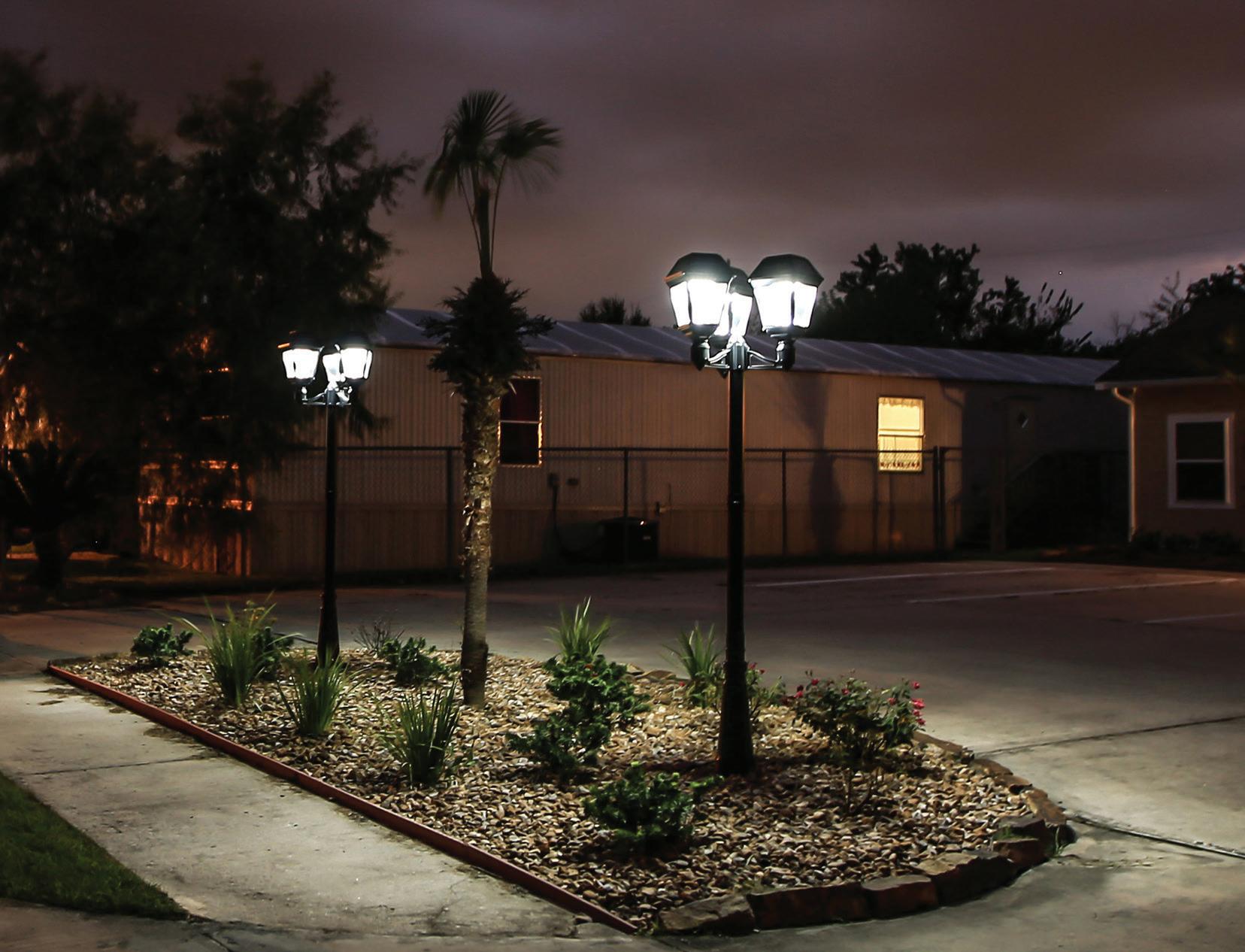














Champion Homes has appointed Tim Larson, the company’s former chief growth officer, as its CEO, succeeding Mark Yost.
Yost had served as president and CEO since June 2019.
Larson joined Champion Homes in 2021 and has been responsible for leading the company’s direct-to-consumer growth and brand transformation, driving what the company calls “a customer-centric approach to the business”.
“As we engaged in our ongoing succession planning activities, the board determined that Tim has the right set of leadership, operational and financial skills and experience to lead Champion Homes as it embarks on its next phase of growth,” Champion Homes Chairman of the Board Eddie Capel said. “Since joining the company, Tim has been instrumental in developing and executing our digital direct-to-consumer strategy, expanding our retail footprint, and driving a customer-centric approach to the business. We are confident now is the right time to transition leadership and that he will continue to build on the progress achieved during Mark’s tenure as CEO.
“We remain on track to deliver solid results
in our third quarter and will look to capitalize on new opportunities to unlock even more value for our shareholders with Tim at the helm,” Capel said. “On behalf of the board of directors, I thank Mark for his leadership as CEO of Champion Homes and his many contributions over the past decade.”
Larson previously has been CEO of Jostens, Inc. and CMO and senior vice president of global customer excellence at Polaris Industries.
Champion Homes is a leading producer of factory-built housing in North America. It employs about 9,000 people. With more than 70 years of homebuilding experience and 48 manufacturing facilities throughout the United States and western Canada, Champion Homes maintains an innovative portfolio of manufactured and modular homes, ADUs, park-models and modular buildings for the single-family, multi-family, and hospitality sectors.
“It is an especially exciting time at Champion Homes.” Larson said. “There is a tremendous opportunity to expand and elevate offsite built homes through customer-centric product and service innovation, in support of both homeowners and our retailers. I look forward to working with our CFO, Laurie Hough, and the entire outstanding Champion team as we evolve and grow our portfolio of housing solutions.” MHV











If you have an event or gathering you would like to have listed with MHInsider, please scan the QR code below:

Wednesday, Jan. 15 — Friday, Jan. 17, 2025
Louisville, Ky. — Kentucky Exposition Center
The Louisville Manufactured Housing Show is the nation’s premier indoor show for manufactured home professionals. The annual gathering is organized by the Midwest Manufactured Housing Federation, supported by the state associations of Illinois, Indiana, Kentucky, Michigan, and Ohio. The show brings out an array of new manufactured home designs, the latest in technology innovations, the best in supplier offerings, and a look at all the newest amenities and offsite-built options.
Tuesday, Feb. 25 — Thursday, Feb. 27, 2025
Las Vegas, Nev. — Las Vegas Convention Center
The NAHB International Builders’ Show® (IBS) is the premier global annual event to educate and improve the residential construction industry. It is a hub for new product launches, construction demonstrations, industry thought-leader sessions, home tours, workshops, and panel discussions. Manufactured home and modular home professionals will showcase their products and services in the convention center and in the outdoor village.
Monday, March 17 — Wednesday, March 19, 2025
Biloxi, Miss. — IP Casino Resort and Spa
The South Central Manufactured Housing Institute each year hosts the Biloxi Show for manufactured housing professionals. It is North America’s largest indoor/outdoor manufactured home trade show, featuring an outdoor village with nearly 50 homes on display, an impressive indoor exhibit hall that showcases the newest features from industry suppliers, as well as educational training to help build a business.













In its 64th year, the Louisville Show will return to the Kentucky Exposition Center in Louisville from Jan. 15-17, 2025, bringing MORE to every aspect of the show. The industry’s premier indoor event for manufactured homes on display will welcome a projected 3,500 attendees.
After a wildly successful showing in 2024, the Midwest Manufactured Housing Federation (MMHF) and its five member states are gearing up for an even larger Louisville Show, the annual launch of the new year in home sales.
“2024 was one of our most successful years on record for the Louisville Show, with over 40 homes on display and over 3,000 attendees,” MMHF President Eric Oaks said. “And this year, we’re excited to bring in even more homes, more educational sessions, and more opportunities for our attendees to understand the trends and industry movements taking shape in 2025.”
For the first time ever, the Louisville Show is introducing a new “VIP”

upgrade option for attendees registering for the event.
The paid, expanded VIP attendee designation gives attendees a special evening reception, a personalized badge mailed ahead of the event, premium breakfast options, and other exclusive benefits.
“The VIP upgrade is one of the most sought-after additions to the Louisville Show,” Darren Krolewski, show manager and co-president and chief business development officer of MHVillage, said. “We’re excited for our VIP attendees to experience an elevated experience and benefits.”
In recent years, the Louisville Show occupied Halls B and C of the Kentucky Exposition Center. For the 2025 event, the decision has been made to expand to accommodate display homes and booths from over 130 companies. These will be spread across Halls A,

B, and C, making this one of the biggest shows in over a decade.
“After the massive increase in turnout from last year, we knew we had to expand to bring in more homes and exhibitors,” Oaks said, “We’re confident that the 2025 event will be just as jam-packed.”
The expansion will increase the size of the Louisville Show by nearly 130,000 square feet, Oaks added.
Thanks to the increase in exhibit space, the 2025 Louisville Show will feature an increase in homes on display from the 2024 show, which had a total of 41 homes onsite.
“Right now, we’re estimating nearly 50 homes at the 2025 event,” Oaks said.
This will give attendees even more opportunities to view the manufactured homes of the future before anyone else in the industry.
The addition of the VIP option for attendees also brings more unique opportunities for those with the upgraded status.
Specifically, the event will host a VIP reception on the Tuesday night before the show begins, along with exclusive
breakfasts on Wednesday and Thursday, a VIP lounge with premium seating, wi-fi, and more.

“Professionals from all across the industry come to the Louisville Show, so we’re delivering more here, too,” Krolewski said.
The Louisville Show will partner with multiple food truck vendors for 2025 to ensure attendees have a wider variety of dining options at the Kentucky Exposition Center during the event.
In an expansion from last year, the 2025 Louisville Show will feature a larger lineup of educational seminars. Now, attendees will have even more options for hearing about topics that matter most to them from top experts in the industry— ensuring they’re ready for business in 2025.

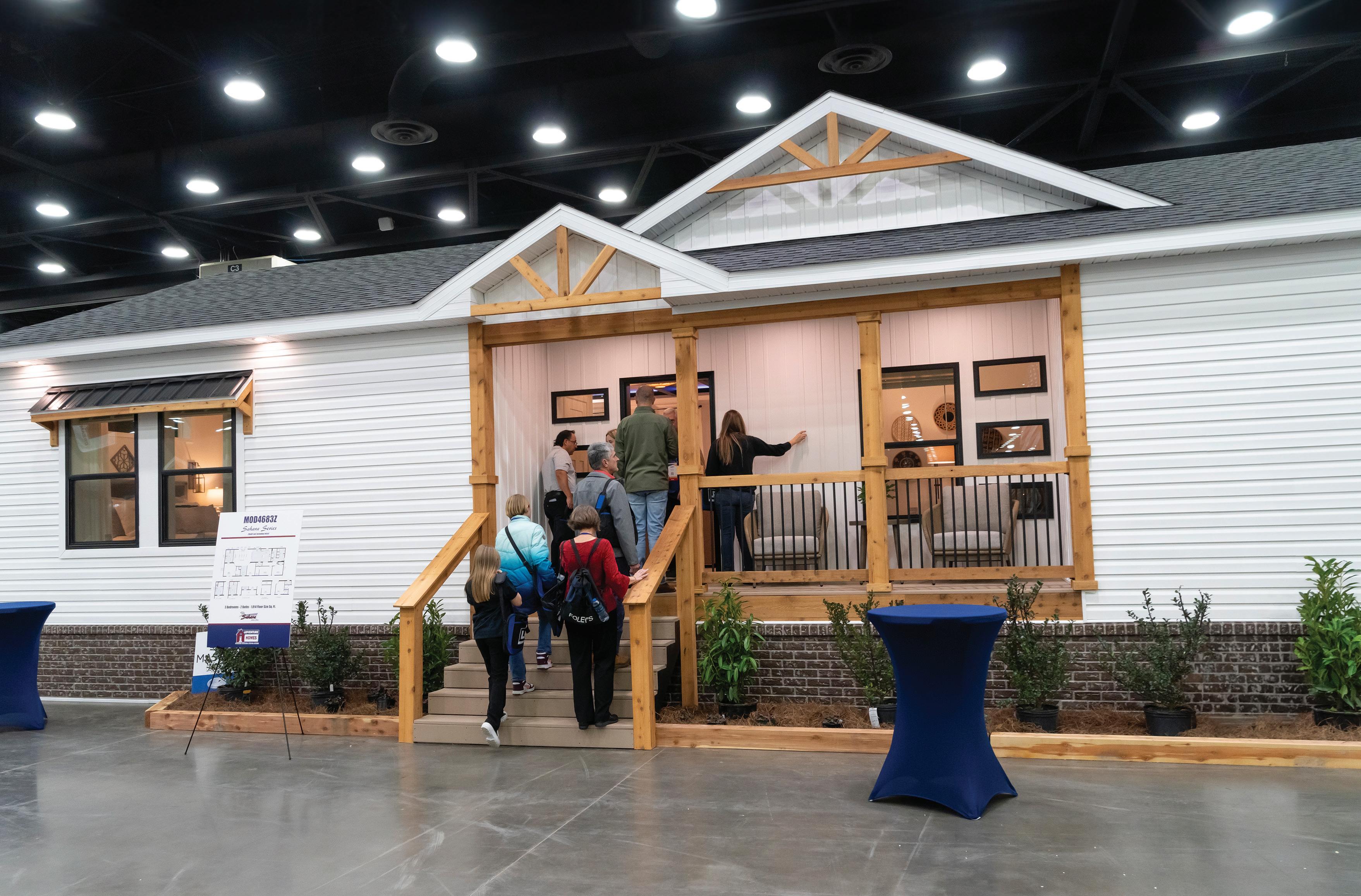

The MHInsider recently sat down for a conversation with the five state association directors that head up the Midwest Manufactured Housing Federation (MMHF). The conversation was about what keeps them up at night regarding manufactured housing in their state, about their roles as Louisville Show Planning Committee members, and expectations for this year’s show.
Editor’s Note: This conversation has been edited for clarity and length.
MHInsider: What trends or innovations are you currently tracking within the industry that you expect to see movement on over the next year?
Logan Hanes, Executive Director, Kentucky Manufactured Housing Institute: There are many municipalities that are doing housing needs assessments, and they’re coming back to the same conclusion of “there’s just not enough.”
John Lindley, President and CEO, Michigan Manufactured Housing Association: Not just in Mich igan , but nationwide there’s an ongoing supply and affordability crisis, and it’s only going to be addressed if manufactured housing remains a key component of the housing conversation in 2025 and beyond. I think the industry is doing a wonderful job of positioning manufactured housing as a really viable option in the housing market.
Frank Bowman, Executive Director, Illinois Manufactured Housing Association: In Illinois, I keep hearing about affordability more than anything from policymakers. If the new designs coming out can be economically approachable, then that’s fantastic.
Ron Breymier, Executive Director, Indiana Manufactured Housing Association: There’s a lot of excitement about the new rules set forth by HUD, with 87 forthcoming HUD Code changes. This will enable our manufacturers and consumers to have access to four-plex units, instead of just single- or double-wides.
Tim Williams, Executive Director, Ohio Manufactured Homes Association: We’re expecting sales to pick up in 2025 following the decrease in interest rates. There’s also interest in more duplex-type manufactured home placements in Ohio communities.
MHInsider: What is the biggest challenge industry professionals are facing in your state, and how is your organization responding?
Breymier: Zoning has been a huge issue for us. Historically we’ve had trouble getting homes placed on private property, or on places not in communities. The new HUD code updates will help break a lot of barriers in that aspect.
Williams: Zoning is still a big barrier to manufactured housing in Ohio, and the state legislature recognizes that. There are ongoing efforts to expand lending for manufactured homes in the state, as well as to reduce the costs associated with regulations when


Lindley: One of the greatest hurdles that we face is “NIMBYism” mentalities in city councils and in township boards. That causes the affordability and supply problems that we see nationwide.
Bowman: One thing we’ve been doing is inviting state legislators to visit manufactured home communities. Since we can’t exactly invite them to Elkhart or Louisville, we invite them to Illinois communities and tour new homes, so they can get an idea of how we’re pushing sustainable housing forward.
Hanes: In Kentucky we are focusing on advocacy at the local level. The Louisville Show is a great tool for us; in the past few years, we’ve invited stakeholders from across the state to tour the homes, so we can get the message across that there’s quality and aesthetic appeal in today’s manufactured homes.
MHInsider: Out of all of your organization’s programs and initiatives, what accomplishment are you most proud of over the last 12 months?

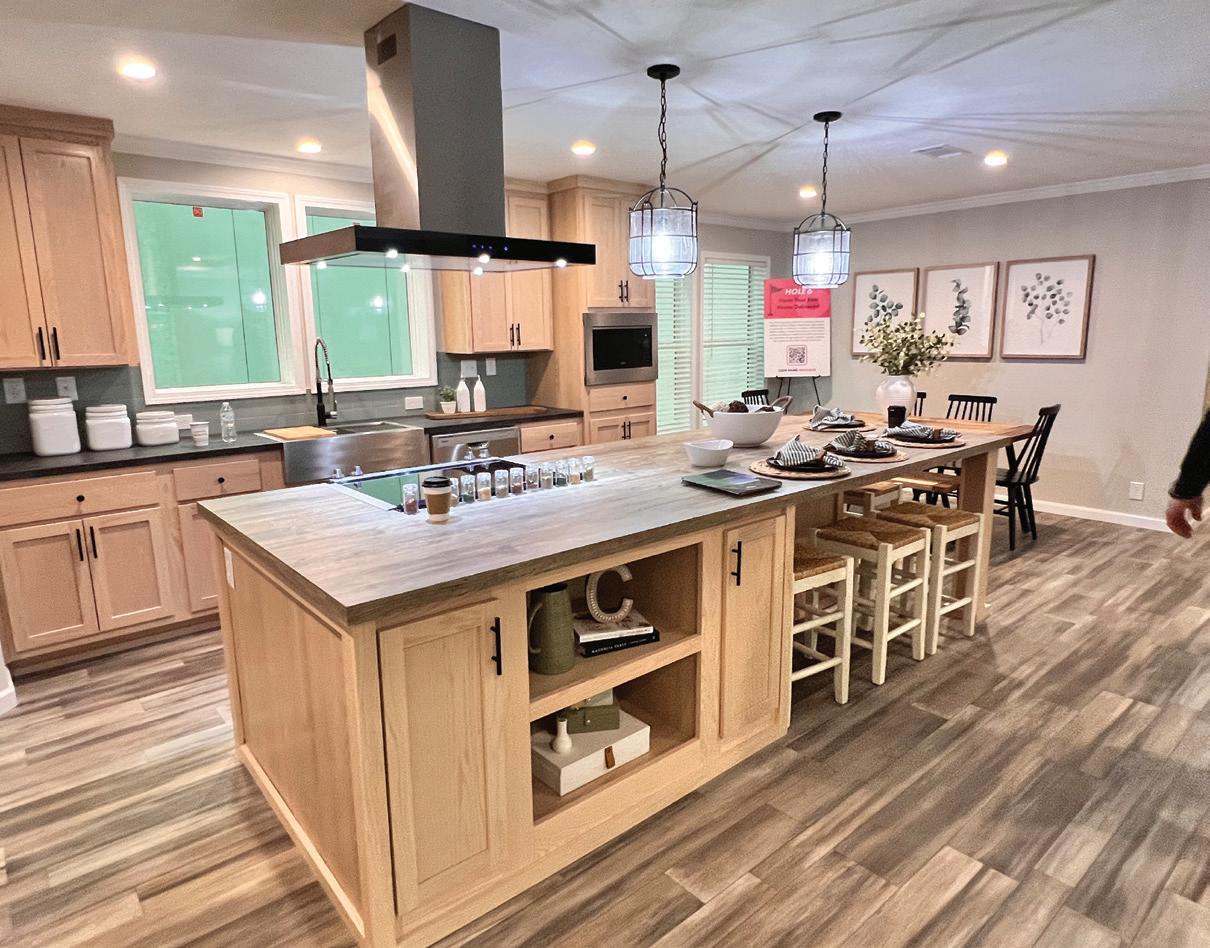
Breymier: Because of verdicts in accidents where the financial burden is placed on a truck driver regardless of who’s at fault, insurance rates for transporters have skyrocketed. Our efforts this year in pushing tort reform have helped mitigate this, and you won’t necessarily read about that in a newsletter.
Williams: Our legislative advocacy is our most impactful effort, because you play a lot of defense in this industry. Often, legislation is introduced that isn’t aware of the impact it’ll have on manufactured housing, and once we provide input we get traction that turns into a net benefit.
Lindley: I think we’ve been successful in maintaining the growing business climate for the industry in Michigan, for sure.
Bowman: We’ve had a program we’ve been doing this year — an image campaign, if you will, that’s been very successful. Boosting our image on both social media and in the statehouse.
Hanes: Our partnership with the League of Cities has been a big accomplishment. Because we desired to build a relationship, we’ve actually become a corner-









• $2.1 billion in total enterprise value
As a publicly traded REIT (NYSE:UMH), we have been providing quality a ordable housing since 1968. Our portfolio provides high pro t margins, recession resistant qualities, reliable income streams and the potential for long-term value appreciation.
• 136 communities, 25,800 homesites, 2 joint venture communities containing 363 homesites, 11 states

• Housing approximately 22,000 families
• 7,800 total acres, 3,800 acres in Marcellus and Utica Shale regions












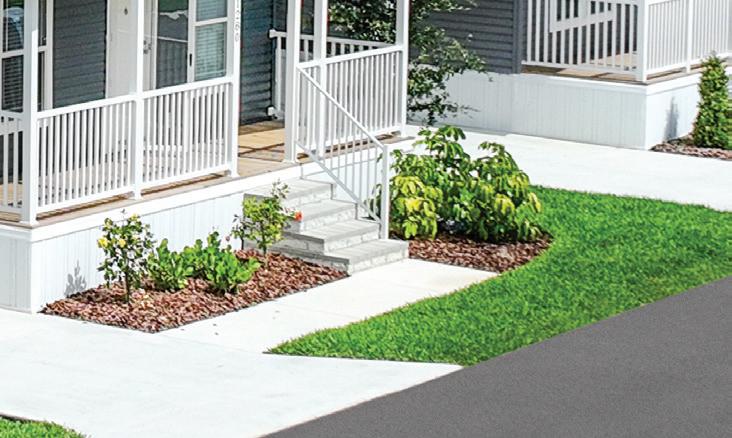












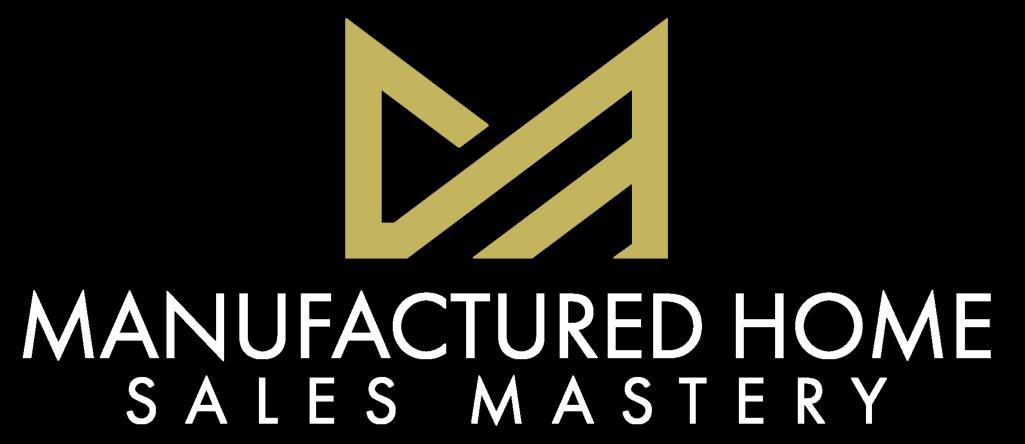




stone partner of the League. 2024 is the second year that we set up a home at their annual event.
MHInsider: What innovations or new trends are you most excited to see at the 2025 Louisville Show?
Breymier: I’m so excited that we’re expanding the show. We’re accommodating even more homes, including some park model HUD Code homes.
Lindley: It’s really exciting to watch the show grow even more in the post-pandemic market. We’re working tirelessly to increase the number of homes, manufacturers, and exhibitors.
Hanes: It seems like every year we’re pushing the envelope on the exterior of the homes, and there will be more creativity than ever on display this year.
Williams: I’m excited for discussions around the duplex and four-unit manufactured homes that are forthcoming. Those could be game-changing for the industry, and there’s a lot of interest in that in Ohio.
Bowman: It’s always fun to see the homes, and the conversations you have are critical — including with our manufacturers.
MHInsider: What advice would you give to first-time attendees of the show?
Hanes: If you’re a retailer, order some homes! This is a great opportunity for you to walk in, feel, touch, and see what it is that your consumers will shop for at your retail lot.
Breymier: I recommend attending the educational seminars. This is the chance to hear from people that have a great deal of experience and knowledge.
Williams: I agree — alongside seeing the homes on display, the interaction with colleagues is a very important value, too.

Lindley: Make sure that you use your time efficiently. There’s SO MUCH for an industry pro in terms of value and takeaway.
Bowman: Take it all in. The folks that are there have basically the entire knowledge of the industry at their disposal.

Industry professionals who are interested in attending the 2025 Louisville Show can register at TheLouisvilleShow.com, or register on-site when they arrive at the KEC.




































































































OFFICIAL ENTERTAINMENT SPONSOR

DIRT TRAIL ENTERTAINMENT







OFFICIAL SHOW SETUP SPONSOR


15-17,










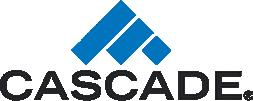








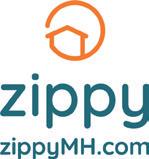


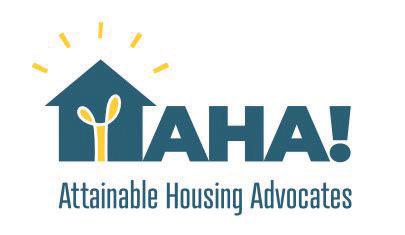


















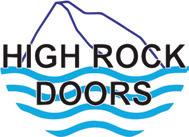














By Eden Markowitz
Manufactured home communities are a unique and valuable asset class, offering a steady income stream and long-term appreciation. However, many owners may not be fully aware of the hidden financial benefits their properties can offer.
Cost segregation, a tax strategy that accelerates depreciation and increases cash flow, is particularly effective for this asset class. By understanding how this strategy works and why it applies so well to manufactured housing communities, owners can uncover significant tax savings, offset income, and maximize the value of their investment.
Cost segregation is a tax planning tool that allows property owners to reclassify components of their property into shorter
depreciation categories. Instead of waiting the typical 27.5 or 39 years to recover costs, components such as land improvements or certain structural features can be depreciated over much shorter periods — Five, 7, or 15 years, for example.
Two key elements enhance the effectiveness of cost segregation:
Bonus Depreciation: Current tax laws allow a significant portion of qualifying assets to be fully depreciated in the year they are placed in service. For community owners, this means substantial upfront tax savings.
Accelerated Depreciation: Even without bonus depreciation, reclassifying assets into shorter depreciation schedules can significantly increase annual deductions, improving cash flow year after year. »
Whether the community includes just a few units or is a large-scale operation, cost segregation can deliver significant benefits. Because so much of the property qualifies as depreciable assets — movable homes, infrastructure, and land improvements — the strategy proves valuable across all price points.
Land-lease communities are uniquely suited for cost segregation due to their high proportion of shorter-life depreciable assets. Here’s why:
Land Improvements: A significant portion of a community’s value often lies in land improvements, which have a 15-year depreciation schedule. These include infrastructure like roads, sidewalks, driveways, and parking lots — components that make up a substantial part of a community’s value.
Movable Homes: Unlike traditional residential structures, park-owned movable homes can be classified as 5-year assets. Additionally, utility hookups including water, sewer, electrical, as well as items like signage and furnishings, also
categorized as short-life assets, yielding significant first-year tax benefits when combined with bonus depreciation.
Missed Opportunities: Many CPAs mistakenly classify all park assets under longer depreciation schedules, leaving significant tax savings on the table. Proper cost segregation ensures these misclassifications are corrected, unlocking potentially hundreds of thousands of dollars in missed deductions.
Cost segregation isn’t a one-size-fits-all strategy. It offers tailored benefits depending on the investor’s profile:
Smaller Investors: For those filing as individuals or small business owners, cost segregation can offset not only passive income but also active income under certain conditions. This creates an opportunity to reduce personal tax liabilities while increasing available cash flow.



Kurt Kelley President
Institutional Investors: Larger operators with LP investors can leverage cost segregation to enhance cash flow and provide significant tax benefits to their limited partners. This added value can strengthen relationships with investors and boost the property’s overall ROI.
What if your property wasn’t recently purchased? Cost segregation isn’t limited to new acquisitions. Lookback studies allow owners to retroactively capture missed depreciation from previous years without the need to amend previous tax returns. This means that even long-held communities can still benefit from this strategy, often resulting in sizable tax refunds.
To illustrate how cost segregation can create substantial tax savings, let’s examine a real-world example:
In October 2024, a community in Wichita, Kan., was acquired for $1,444,000. The property included 41 homesites. Twenty-three were tenantowned homes, 15 park-owned homes, and there were three vacant sites. The land was valued at $216,600, leaving the remaining $1,227,400 eligible for depreciation.
Here’s how cost segregation unlocked immediate tax savings for the owner:
47 percent (5-year property): Assets like park-owned movable homes, utility hookups and other short-life property components such as signage and certain furnishings.
34 percent (15-year property): Land improvements, including roads, sidewalks, driveways, landscaping, and parking areas.
19 percent (27.5-year property): Longer-life assets like community buildings, leasing offices, or permanent structures on the property.
With a cost segregation study and the benefit of 60 percent bonus depreciation, the first-year depreciation deduction totaled $625,532. Without cost segregation, the owner would have been limited to a first-year deduction of just $9,304 under traditional depreciation schedules.
This substantial tax savings provided a significant boost to the owner’s available cash flow, creating opportunities to reinvest in the property, fund other acquisitions, or improve their overall financial flexibility.
Whether the community includes just a few units or is a large-scale operation, cost segregation can deliver significant benefits. Because so much of the property qualifies as depreciable assets — movable homes, infrastructure, and land improvements — the strategy proves valuable across all price points.
For instance, a $500,000 mobile home park could yield proportional tax benefits just as compelling as a $10 million property. The key is understanding how to categorize assets correctly and maximize their depreciation potential.
By exploring opportunities like lookback studies and properly classifying movable homes and land improvements,
owners can make smarter tax decisions that drive long-term profitability. If so, consult with a CPA or tax advisor to evaluate eligibility and ensure the property is maximizing tax savings under current regulations. MHV

Eden Markowitz is a cost segregation expert with Madison Specs. He has a proven track record of helping real estate investors maximize their tax savings through strategic planning. Eden’s deep expertise in accelerated depreciation helps his clients unlock substantial financial benefits. His commitment to delivering outstanding results and maintaining strong client relationships underscores his role as a trusted advisor in the real estate industry.





By César Mascorro, Jr
There used to be a time when our industry served a very specific purpose of providing homes mainly for those who lived in rural areas or in a “mobile home park”. We served a very niche client base and felt that all was right with the world.
Fast forward to 2025 and the market has evolved. We’re ordering our groceries through our phone, attending conventions via our computers, and charging our cars rather than filling them up. Manufactured home sales are not exempt from the evolving landscape of a new economy. With that being said, the new potential client base that needs what we have to offer requires the foundation of our sales process to evolve. With unique challenges, high-stakes decisions, and diverse client needs, the industry demands more than traditional approaches.
This is where emotional intelligence enters, bringing a transformative framework that empowers leaders and sales professionals to elevate their roles. Emotional intelligence is built on four values, as follows…
• Empathy
• Empowerment
• Strategic thinking
• Leading by example
Let’s explore how each of these values contributes to building stronger teams, lasting client relationships, and a resilient, forward-thinking business culture. Let’s start by understanding what emotional intelligence entails.
Emotional Intelligence:
Navigating Emotions with Skill
Emotional intelligence, also commonly referred to as emotional quotient or EQ,
is the ability to understand and manage one’s own emotions and to strategically evaluate and perhaps manage those of others. In a high-stakes industry like manufactured home sales, EQ is crucial for handling stress, resolving problems as they arise, and adapting to rapidly changing client needs. High EQ leaders are skilled at reading situations accurately, which enhances decision-making and strengthens relationships with team members and clients. Emotional intelligence enables us to stay calm under pressure, anticipate the emotions of others, and respond in ways that foster trust and rapport.
For manufactured home sales consultants, EQ helps in understanding the unspoken reasons behind client hesitations and objections. By identifying and addressing the emotions underlying a buyer’s concerns, consultants can offer reassurances and solutions that resonate on a deeper level. For example, a client’s hesitation about a home might stem from concerns over financial security rather than the home itself. Recognizing these cues and addressing them sensitively can be the difference between a sale and a missed opportunity. With high EQ, consultants can transform objections into opportunities, strengthening client trust and ultimately driving success. To be in tune with the client in this manner, one must operate with empathy.
Empathy is more than acknowledging a client’s perspective; it’s understanding and feeling their emotional journey. This is especially important in manufactured home sales, where clients are often navigating one of the biggest decisions of
their lives. Buying a home is not just a transaction — it’s a significant milestone filled with excitement, anticipation, and sometimes, uncertainty. Top leaders in any industry understand that empathy creates trust, loyalty, and long-lasting relationships. Empathizing with clients means sales consultants are better equipped to recognize their clients’ concerns, fears, and hopes, ultimately providing solutions that address both practical and emotional needs.
Empathy in manufactured home sales translates into a client-centered approach where consultants listen actively, validate client emotions, and respond with genuine care. By tapping into the client’s emotional state, consultants can guide them through the process in a way that builds confidence and satisfaction. This strengthens the sales relationship and leads to positive referrals and long-term customer loyalty. In an industry where we’re constantly fighting a negative stigma, reputation matters, the ability to connect deeply with clients is invaluable. When you start with empathy, you can empower both your clients to make the decision they came to make and yourself to be the professional housing consultant you need to be.
Empowerment is about providing others with the confidence, resources, and freedom to take control of their success. High-performing leaders understand that empowering their clients leads to higher productivity, innovation, and a self-sustaining organization. In manufactured home sales, empowerment starts with training to
not just to close deals but to navigate complex negotiations independently. When clients feel empowered, they are more confident in their decision-making process, often leading to a smoother sales experience. Consultants who embody empowerment offer clients clarity, reliable information, and the tools they need to make informed choices on day one.
High-performing leaders and consultants understand that they set the tone for their teams and clients and that their commitment, integrity, and consistency are powerful motivators.
By doing so, they instill confidence in the home-buying journey and reinforce a sense of partnership. Empowering clients leads to a win-win: Consultants build stronger client relationships, and clients gain the assurance they need to make one of life’s biggest decisions. In order to empower others, we must think through the different scenarios that may present themselves. That’s where strategic thinking comes into play.
Strategic thinking is the skill of aligning immediate actions with long-term goals. High-performing leaders use strategic thinking to anticipate industry shifts, optimize resources, and build »

a sustainable vision for the future. In manufactured home sales, where trends, financing options, and client needs have evolved over recent years, strategic thinking enables consultants to stay ahead of the curve.
For sales consultants, adopting a strategic mindset means looking beyond individual transactions and focusing on building lasting relationships. Rather
In the context of manufactured home sales, leading by example holds particular significance. When housing consultants, sales managers, and general managers show resilience, dedication to customer service, and a proactive approach to challenges, they inspire their teams to emulate these qualities.
than simply aiming for quick sales, consultants who think strategically are committed to fostering connections with clients, industry partners, and lenders. This forward-thinking approach opens doors to increased business, referrals, and valuable partnerships. By investing in client relationships and prioritizing long-term success, strategic thinkers create a foundation for sustained growth,

Where we’re committed to:
Making a complex process smooth and simple.
Crafting lending programs with your needs in mind.
Improving the lives of the people we serve.


Visit our booth at the Louisville Show to learn more and enter to win our giveaway!
NMLS# 486243
Contact us at: MHinfo@CreditHuman.com

positioning themselves — and their companies— as trusted leaders in the industry. My former boss, Joseph Kesterson, who was my mentor when I was a general manager in Texas, would say “you must be a thinker”. When you become a strategic thinker, you will lead by example and that inspires many.
“Actions speak louder than words” is a timeless adage that resonates deeply in the emotional intelligence philosophy. Leading by example means demonstrating the attitudes, behaviors, and work ethic that you expect from others. High-performing leaders and consultants understand that they set the tone for their teams and clients and that their commitment, integrity, and consistency are powerful motivators.
In the context of manufactured home sales, leading by example holds particular significance. When housing consultants, sales managers, and general managers show resilience, dedication to customer service, and a proactive approach to challenges, they inspire their teams to emulate these qualities. This translates to a cohesive team culture grounded in professionalism, respect, and trust. Moreover, consultants who lead by example
with clients reinforce their belief in the product and their dedication to customer satisfaction. Clients are more likely to trust and respect consultants who demonstrate a sincere commitment to their needs and a strong work ethic, leading to higher credibility and more successful sales interactions.
Emotional intelligence is more than awareness — it’s a call to action for those in the manufactured home sales industry to lead with purpose, compassion, and vision. By embracing emotional intelligence and all that it’s built on, industry professionals are better equipped to face challenges, adapt to changes, and inspire teams and clients.
This approach empowers manufactured home sales consultants to build not only their careers but also their client relationships, creating a positive ripple effect throughout the industry. This will also empower the new market segment available to anyone in the manufactured home sales industry to decide to move forward with purchasing a manufactured home rather than waiting in hopes of interest rates on a home loan dropping back to what they were prior to March of 2022. In an era where clients expect more than just transactional experience, emotional intelligence offers a blueprint for success. Those who embody the values we covered bring out the best in their teams and elevate the buying experience, creating a stronger, more resilient industry. By setting a standard of excellence and guiding with empathy and strategic

insight, emotional intelligence helps manufactured home sales professionals not only meet but exceed the expectations of their clients, shaping a bright future for the industry. MHV

César Mascorro, Jr is the president and founder of Manufactured Home Sales Mastery, LLC which is a manufactured home sales consulting and training company. César has been in the residential housing industry since 1993 and specifically manufactured housing since 2009. César has served in the capacity of housing consultant, operations manager, and general manger for both independent and corporate retail sales locations in Texas.




The nation’s largest utility management provider has continued to grow, this time with the addition of a bulk internet management provider.
Conservice, which in 2021 purchased an ESG service provider, has about 75 percent market share in utilities management. This time the expansion is in the internet services space, an offering that has come to be just as vital to residents as traditional utilities like running water and electricity.
Onboard, based in Salt Lake City, Utah, was purchased by Conservice in April. Onboard’s team of telecom experts leverage

partnerships with over 40 service providers nationwide to negotiate, deploy, support, and manage bulk internet packages for property owners and their residents.
“Managing and supporting bulk internet programs is a natural expansion of Conservice’s utility management services,” Mike Doucette, Onboard’s head of business development, said. “Affordable connectivity offerings attract and retain residents, while property owners can see increased NOI with offerings tailored and managed by Onboard.”
In a bulk model, the property owner may pay $35 per unit to provide the service to each resident while Onboard works closely with the owner to ensure the offering is priced appropriatelyand competitively — in each market to the resident. Among the internet providers Onboard partners with are several of the nation’s largest along with regional and local options. To begin the process, Onboard secures from an owner a letter of authorization to speak with providers on their behalf.
What differentiates the Onboard product from its competitors, Doucette said, is the reputation for high-quality client relationships and detail in excellent service — all qualities that Conservice has championed for nearly 25 years.
“After the contract has been signed, how do you get your residents excited and informed about the offering? That’s where Onboard truly shines, by continuing to manage and support the program long after deployment,” Doucette said. “That includes driving residents to a custom branded portal to sign up, implementing drip marketing campaigns to drive awareness, and ensuring owners stay ahead of evolving industry regulations.
“It’s a comprehensive white glove service that is backed and enabled by our tech platform,” he said.”We’re thrilled to now be part of the Conservice family, and together our services can revolutionize properties’ technology and utility management.” MHV


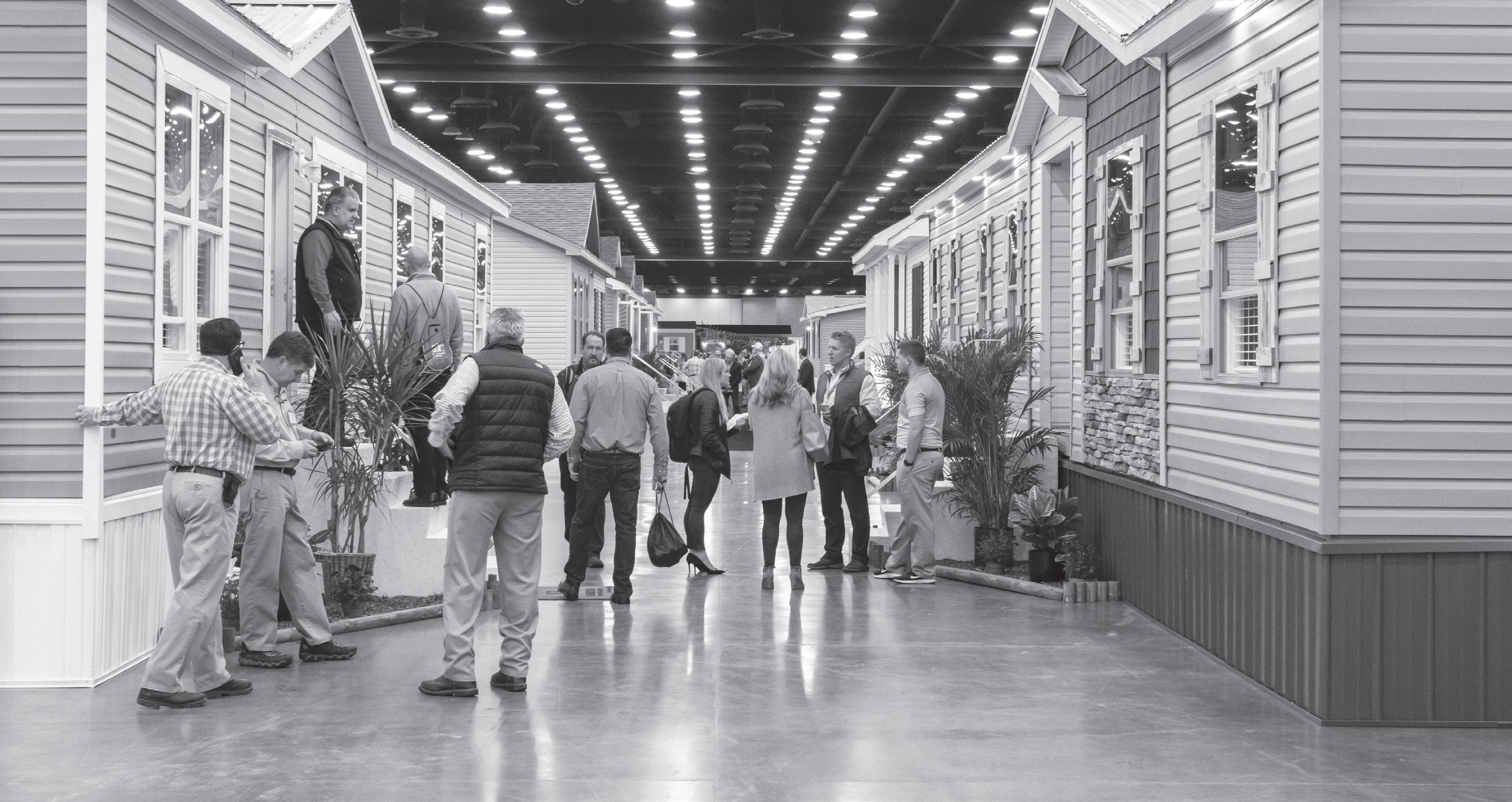






By David Finney
If you’re staring at empty spaces or empty homes, you have a problem to solve: Where are the buyers?
Before you start putting up lender banners, blindly boosting Facebook marketplace posts, sending mailers to existing residents, hosting fish fries, or any other promotional endeavor, you need to ask yourself “Why?”.
Why don’t I have interest in that shiny new multi-section home? Why can’t we sell more affordable homes in a housing affordability crisis?
If you’re a business owner, manufactured housing or otherwise, there are three reasons that buyers in your market are not purchasing your product:
1) Buyers don’t know you exist
2) Buyers don’t want what you’re selling, and/or
3) Buyers don’t trust you
It may be one of these, any mix of them, or a little of each. Let’s look at each possibility, and examine some solutions.
If no one knows you’re there, you’ve got a marketing problem. Marketing is how businesses get attention – it is how they become known. All businesses have to market. Some use word of mouth, some advertise on various media platforms, while others employ guerilla marketing tactics.
Do your buyers know you exist? This is the key question in determining whether your marketing is working, or not. The first step is to define what buyer you’re asking about.
Do buyers in your market area know you exist? If the answer is yes, your marketing is working. If the answer is no, you need to turn up the volume.
There is an important distinction I need to make here… when I say buyers don’t want your product, I don’t mean that they don’t need it. Your sales and marketing will create the want, and in our industry’s case, market conditions create the need. It’s no secret that every market area in the United States needs more housing. The problem is that there’s not enough want.
How do we make a prospective homebuyer want to purchase a manufactured home?
Good marketing piques a buyer’s interest, and a good sales strategy turns that interest into want.
To see if you’re creating the “want”’ from your market, look at your conversion rate for all leads (phone, web, walk ups). How many prospects that expressed interest in purchasing a home bought one?
There is no ideal conversion rate. All industries, sectors, and sales organizations differ. However, I can tell you that 0.1 percent is way too low and 100 percent is too high. The problem with
a low conversion rate is clear. And too high of a conversion rate usually means your marketing is ineffective and only those that are very eager to buy are inquiring. Take a look at pricing and understand that if slim margins are associated, the sales process will prove to be unsustainable.
If it’s too low, you need to look at your sales system. Is the sales team working to earn that appointment (8-10 touchpoints per lead)? Do they know the ins and outs of the home and the community so that they can feature-benefit both? Are they asking the right questions during the sale to learn what problem a new home in your community can solve for your prospective buyer?
Our industry is in a place now where there is plenty of need, but there’s not a whole lot of want. Marketing and sales systems must both work to create the desire to purchase and live in a manufactured home.
Conversation creates rapport, rapport builds relationships, relationships build trust, and trust closes deals.
If you’re in sales, you’ve likely heard some sort of variation of that mantra. It’s what every new salesperson learns in their 101
sales training class. Your salespeople aren’t just in the manufactured housing business, they’re in the relationship business. The more trust they build, the more homes they will sell.
To create more trust in your sales process, you need to take an honest look at that process and determine what you can change to make the process more transparent and of more benefit to the customer. Buyers trust things that are transparent and things that clearly benefit them.
Here are some examples of changes that we’ve helped retailers and community operators make to improve their transparency:
Clear Pricing
If a customer visits your website, sales center, or office, can they easily determine prices? In today’s e-commerce, and the abundance of information, buyers do not trust sellers who are unclear on pricing. It makes them feel as if the seller is hiding something, and if buyers think a seller is hiding something, they are not going to trust them.
Does your pricing vary from customer to customer? A cash price and a financed price? There are circumstances under which pricing changes, if it’s connected to an associated valued »













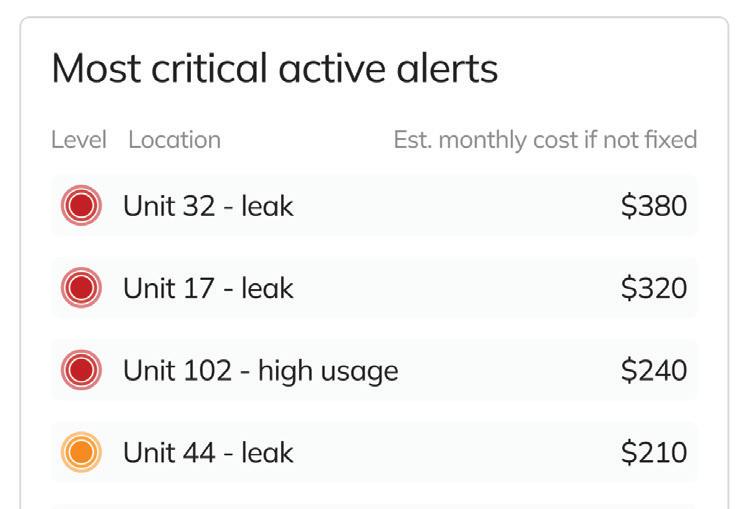



service or expansion of the offering. But today’s buyer has come to expect a consistent price for a product.
As a document becomes longer, more complex, and full of “legalese”, the less a customer will trust the business asking for their signature. Yes, there are certain elements of an agreement that must be present, but there also are elements that you can remove. Perhaps you had one bad apple that caused your attorney to go overboard and add lengthy language to an agreement to cover a situation that will likely never happen again? Try and read your agreements from the perspective of a buyer – do they create trust, or dispel it?
As we all know, the manufactured housing industry is in a tremendously advantageous position for growth. The nation’s growing affordability housing crisis shows no signs of slowing, and we have the perfect solution.


But to do that, we need to change and grow. We need to create more awareness and more trust. We need to show the millions of prospective home buyers the value, and durability of our product. MHV David Finney founded Bild Media in 2019 to help independent dealers and manufacturers tell their market about the incredible quality and value that a manufactured home offers. He has over a decade of industry experience in marketing and business development at 21st Mortgage Corp. Finney has owned multiple local businesses, and is very aware of the struggles of owning a business, and what it takes to market and advertise in a community.










Accounting software that adapts to you, Rent Manager was created for all of your community’s property management needs.
From asset tracking and loan management to metered utilities and billing, Rent Manager’s robust accounting features are built for you.

By Ray Leech

The requirement to create the Duty To Serve (DTS) Underserved Markets Plans by Fannie Mae and Freddie Mac was established by Congress in the Housing and Economic Recovery Act of 2008. Both agencies are required to develop ways to improve mortgage access for very low-, low-, and moderate-income families across the three underserved markets. These markets include: Manufactured housing, rural housing, and affordable housing preservation.
As we begin 2025, let’s look at the Fannie Mae and Freddie Mac three-year Plans for 2025 through 2027 and summarize their proposals for manufactured housing.
The Fannie Mae plan begins with an overview of the market, pointing out most buyers continue to rely on chattel or personal property loans to finance MH homes. They identify several areas of focus for their strategic planning, including continuing to support energy-efficient MH home construction, broadening MH eligibility for two-to-four-unit homes as an infill housing solution, and addressing the stability of renters by promoting use of voluntary rent restrictions within MH communities to address workforce housing needs.
Challenges continue in the MH market including how units are titled, which determines how they can be financed, the declining number of MH communities, and the fact that fewer MH homes are being constructed, with the lowest level of production since 2016—only 90,000 new homes built in 2023.
As part of its three-year Plan, Fannie Mae set the following targets for purchase money mortgages for MH units:
2025 ......... 6,300 loans
2026 ......... 6,800 loans
2027 ......... 7,400 loans
For comparison, in 2023, Fannie Mae purchased 5,689 purchase money mortgages.
Another objective is to expand the adoption of conventional financing for manufactured homes by addressing the risks of MH lending through updates to their products and processes. This would include adding MH appraisal data to the Collateral Underwriter® (CU) system which helps lenders manage collateral risk as part of their underwriting and QC process.
In the plan, Fannie Mae noted that in 2018, MH units became eligible for the HomeStyle® Renovation and Energy products, but there has been barely any origination of either for MH units. They plan to research why these products have not been utilized more, and determine best practices and possible enhancements to grow this business.
Fannie Mae also wants to increase loan purchases of manufactured housing community units owned by government entities, nonprofit organizations, or residents. And increase purchase of MH loans in communities with rent restrictions, such as Community Land Trusts.
Regarding the Freddie Mac plan, it wants to continue moving the single-family manufactured housing market forward in several significant ways.
Increase number of loan purchases secured by manufactured homes titled as real property.
Continue manufactured housing financing offerings and enhance them to expand market support, as appropriate, based on industry feedback and with consideration for safety and soundness.
Integrate a curriculum into their Develop the DeveloperSM program to educate real estate developers on using manufactured homes in new housing developments and as infill. This will increase the number of knowledgeable developers and will lead to increased supply of affordable homes for sale, especially in rural areas.
In the past three years, Freddie Mac had a baseline average of 5,957 loans purchased including 6,248 loans in 2023. Regarding the goal on purchase loans, it has specified the following targets for the next three years:
2025 ......... 6,550 loans
2026 ......... 6,800 loans
2027 ......... 7,100 loans
Freddie Mac plans to focus on product enhancements to encourage small balance mortgage lending on manufactured homes, based on research completed in 2023. In 2025, it plans to gather feedback from 10 industry participants on this issue, and determine possible product features if needed to support this type of lending product.
As part of their plan, they want to continue to work with communities that have special challenges because the borrowers own the home, but rent the pad on which it sits. Freddie Mac did »
Challenges continue in the MH market including how units are titled, which determines how they can be financed, the declining number of MH communities, and the fact that fewer MH homes are being constructed, with the lowest level of production since 2016—only 90,000 new homes built in 2023.

research on MHCs and claimed to have found issues with tenant protections, which they documented in a white paper in 2019. In 2021, they made a decision to require tenant protections for all future transactions and in the next three years, they plan to encourage the broad adoption of these tenant protections while maintaining sound lending standards. They hope that this requirement will result in tens of thousands of additional pad renters benefiting from protections that they claim typically exceed those provided by state or local law every year.
Finally, to help address affordability challenges, Freddie Mac plans to establish a new loan product that provides more favorable financing to borrowers that agree to the preservation of affordable pad lease rents as a condition of the Freddie Mac loan agreement. This could institute a new market standard for rent preservation that presently does not exist for MHCs.
On Nov. 25, 2024, FHFA issued a press release in which FHFA Director Sandra L. Thompson: “These new Plans underscore the commitment of FHFA and the Enterprises to ensure that the housing finance system responsibly supports borrowers and
renters across the country. It is critical that innovative ideas for addressing liquidity needs in underserved markets be implemented and scaled up in rural communities and other areas facing access and affordability challenges.”
The release mentions manufactured housing as well, stating: “Both Enterprises’ DTS Plans also enhance their programs for manufactured housing communities to better support owners that voluntarily limit rent increases for leased pads.”
Under the current DTS and FHFA regulations, Fannie Mae or Freddie Mac could modify the plans if future events affect its ability to achieve their initial objectives. MHInsider will continue to monitor the status and progress of these plans in the coming years.

Berkshire Bank Product Manager Raymond Leech has worked in the mortgage industry for more than 30 years, having developed and managed construction and renovation mortgage products, as well as working on FHFA Duty To Serve efforts involving manufactured housing, rural housing, and affordable housing.
Engage Yale Advisors well in advance of a sale to guide you through the process and to maximize your results.





Stay updated on MH & RV market conditions and comparable sales. Pay special attention to your local market occupancy and rent comparables.



Ensure the property is well-maintained and marketready. Lease any vacancies, sell park-owned homes (POH), and review expenses for potential cost savings.
Obtain an accurate valuation to determine your park’s value today and potential value over the next few years.
Ensure all titles, leases, and documents are current and complete. You may consider ordering updated title, survey and environmental studies.
Review and enhance your property’s financial performance to attract buyers.







By George Allen, CPM Emeritus, MHM-Master
When I got into the mobile home park business in 1978, as a regional property manager for Turtle Creek Management, Inc., in Indianapolis, Ind., I had no idea who my peers were “in the MH business”. As naïve as it sounds today, beyond my three parks in Indy and Louisville, Ky., I had no idea who owned or managed this type of property throughout the Midwest and beyond. It was in 1980, while seeking new employment, I asked my friend Craig White for advice. Through his contacts within the Manufactured Housing Institute, he identified a half dozen of what we now call “portfolio owners” scattered across the U.S. That was it, there were not but a few more. Seriously. And for much of the first four decades of manufactured housing history before 1978, the sole resource, relative to standalone “mobile home park” identity and quality, was the Woodall Star Mobile Home Park Rating System & Directory. That publication, as I wrote about in a recent column, ceased distribution during the late 1970s.
In the words of its last owner, the late George Goldman, stated “the Woodall reps took off their inspector hats, donned their sales hats, and pitched some of the advertising opportunities to the park’s owner. Maintaining objectivity and independence in those two conflicting assignments was a constant challenge.”
A decade later, the August 1988 edition of the Roulac Strategic Real Estate newsletter, published monthly by Deloitte Haskins + Sells, featured an article entitled Largest Mobile Home Park Owners in 1987, identifying 25 property portfolio owners/ operators of mobile home parks throughout the U.S. Perusing that list today is akin, for me anyway, to reading about the interesting lives of the signers of our nation’s Declaration of Independence.
The first firm on this historic 1987 list in declining order of number of “spaces” is the Lautrec Group, today commonly known as LAUTREC, Ltd. in Michigan. I’ve known one of the founders, Spencer Partridge, for decades, as well as his son, Ross Partridge, who owns and operates the world’s largest privately-owned portfolio of land-lease communities, RHP Properties, Inc.
Second firm on this august list is Clayton Williams & Sherwood, Inc., then out of Newport Beach, California, a major player during the 1970s, 80s and early 90s. It, like most of the firms are, is gone, having been absorbed by other portfolios, having rebranded, or having simply gone out of business. A few, such as Uniprop Inc., also in Michigan., continue but are now smaller in size by rental homesite count. Homefree Village Resorts in Colorado, founded in 1972, was the real estate asset class’ first publicly-traded land-lease community firm. Here are firms that were commonplace in 1987, though are rarely or no longer in »










industry news: DeAnza, Mobile Home Communities, Inc., Aspen Enterprises, Planned Management Systems, R.O.C. Properties (once known as River Oaks Communities and not to be confused with ROC USA), Charles P. Royce, Inc., Merrill Lynch Hubbard, Chateau Estates (later a REIT), The Windsor Corp., Angeles Corporation, Balcor/American Express, Ellenburg Capital Corp, Tandem Affiliates, Brandenberg, Staedler & Moore, McDay Corp., Pegasus Group, Carlsberg Management (Remember Bill Geary, CPM?), Southgate Investors, ET Consultants, Inc., Joseph Winslow, and Oakwood Land Development.
So, what else was going on during that early timeframe nearly 40 years ago?
In large part, as successor to the aforementioned Largest Mobile Home Park Owners in 1987 report, published during 1988, the inaugural Allen Report appeared in December 1989 as a Community Corner feature in the Manufactured Home Merchandiser magazine. That first Allen Report identified 38 land-lease community portfolio firms throughout the U.S. The following year, the Allen Letter was launched as a means of regularly communicating with a rapidly growing pool of owners/operators.
The offering usually began with a commentary on the status of consolidation throughout the manufactured housing industry factories and among 50,000, plus or minus, communities nationwide. This was followed by an update relative to evolving industry terminology. It’s where “manufactured home community” officially became land-lease community.
Then the Allen Report proper began, with a recitation of key industry statistics relative to the number of new HUD-code homes produced, along with any emerging trends. Next, the report database was described in terms of how it was researched via USPS and later online. This was followed by an overall summary of rental homesite counts and the number of communities/ sites included in the report.
The final report, the 32nd, included a dozen evergreen issues pertaining to the industry and realty asset class.
Finally, probably the most popular feature of the Allen Reports was its list of surveyed firms. These 100-or-so firms were listed in order of portfolio size (declining number of rental homesites), followed by the proper name of the firm, home office state, and a breakout of the number of communities owned and or fee managed.
One of the major losses, due to the cessation of the Allen Report, has been the lack of tracking the growth of real estate investment trusts dating back to 1994 through year 2020. During those 26 reporting years, interested parties could easily track the coming and going, growth and shrinkage, of this unique publicly-traded real estate asset. But no more.
Land-lease community consolidation continues, but at a slower pace – recently due to higher mortgage rates, and the reality that most institutional investment-grade properties are already in portfolios. MHV
George Allen is a nonfiction author, internet blogger, and magazine columnist with expertise in manufactured housing and land-lease communities. He also is a retired lieutenant colonel of U.S. Marines, with a combat tour in the Republic of Vietnam and service during Desert Storm. Read his autobiography, “FromSmittyAlpha6 to MHMaven” available via www.educatemhc.com, and also his “Chapbook of Prayer” and “Chapbook of Business Management & Wisdom” as well as other interesting titles. Allen can be reached at gfa7156@aol.com, (317) 881-3815 & GFA c/o Box # 47024, Indianapolis, IN. 46247.





Since 2004, manufactured housing professionals have placed their confidence in MHVillage to generate high-performing leads that consistently deliver the highest returns for their marketing budget.
